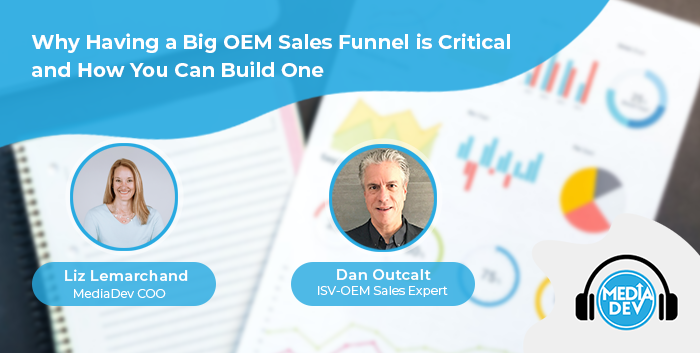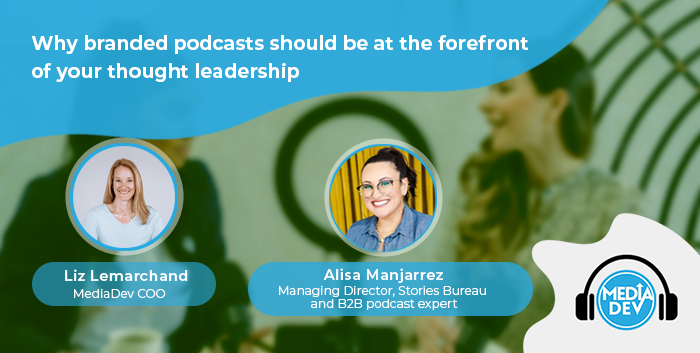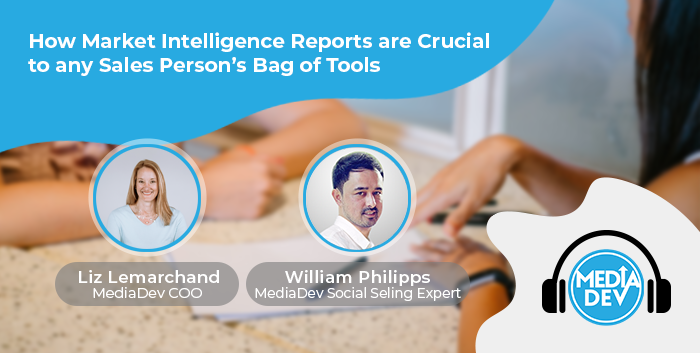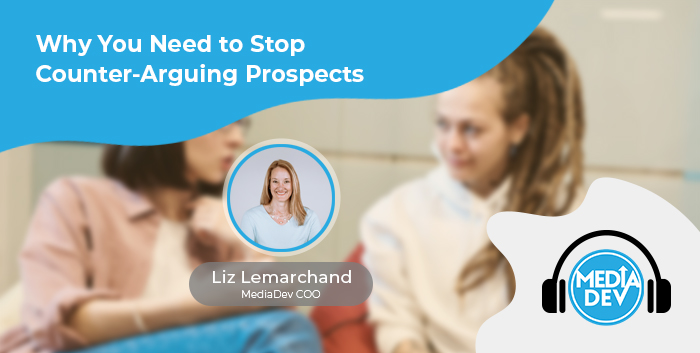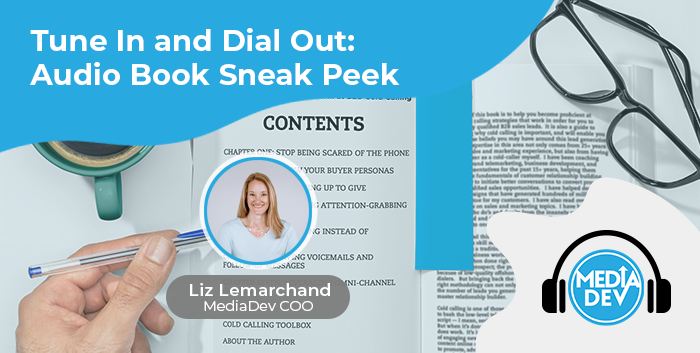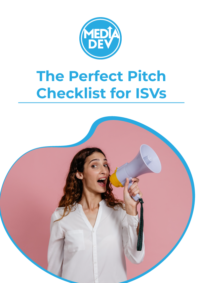Liz and Ryan Sorley, Founder and CEO of DoubleCheck Research, talk about what’s more important in the overall scheme of a software solution sales cycle, what sales reps can do better to ensure that more of their leads convert into actual sales, and why they are losing B2B software sales deals.
Listen to the episode on Anchor, Spotify, Breaker, Pocket casts, RadioPublic, or Google Podcasts.
SHOW NOTES
Is price a driving motivator when choosing one solution over another in B2B software solutions? [01:00]
How important is the price of a software solution in the overall scheme of the sales cycle?
What else is important or perhaps even more important? [02:47]
Why win-loss analysis can help improve the sales cycle? [05:53 ]
What are some critical milestones in the sales process to pay attention to? What can sales reps do better even from the very start of the process in order to ensure that more of their leads convert into actual sales? [08:20]
Resources from Blindspot by DoubleCheck [14:49]
If you’ve enjoyed this episode, please subscribe via Apple Podcast | Google Podcasts | Spotify | Anchor to automatically get the next ones!
Thanks for Listening Today!
Share it with someone you believe will also benefit from listening to it. Use the share buttons below! They’ll thank you for it.
TRANSCRIPT
Liz Lemarchand: How is it that innovative software solutions have the ability to change the world yet they don’t sell themselves? How is it that I know my target market but I’m not able to generate enough sales opportunities? How do I even get started to create visibility for my brand when I’m not an expert in marketing? That is the question and this podcast will give you the answer. Welcome to SMplified: Software Marketing Made Simple!
Hey everyone, this is Liz for MediaDev, and today I am joined with founder and CEO of Double Check research Ryan Sorley. Hi Ryan, how are you today?
Ryan Sorley: Hey Liz, I’m doing great. How are you?
Liz Lemarchand: I am very good and I’m very excited to have you back for another episode of our podcast.
And today we’re going to talk about the truth about losing B2B software sales deals, why it’s not about price, so I’m really interested to hear your opinion about this because so many software vendors think that in order to be competitive, they need to have a cheap price and I know that from your vast experience doing win-loss interviews that you have found that that’s not necessarily the case. So I’d love to understand a little bit more your perspective about that. People often think that price is a driving motivator, you know when choosing one solution over another, but what’s your experience with that? Is that true?
Ryan Sorley: It may be true in the mind of the seller, but in reality when you speak to buyers, it’s rarely the case unless you’re selling some sort of a commodity where one competitor has a solution, that’s pretty much exactly the same as the other solution, and there’s no clear differentiation. But primarily when speaking to buyers about the reasons that they selected a company, price is always going to be a factor. But it’s really rarely the most important factor.
It could be that it was a product-market fit situation. It could be that they had a difficult sales process and didn’t really feel good about a cultural alignment with the organization. It could have been that their best friend works with another company and really enjoys that relationship. So based on that really strong peer referral they went with the other company.
But what happens is in post mortem discussions, when the seller is on the phone asking why they didn’t win, it’s just really easy for the buyer to say price. It kind of lets them off the hook so they don’t have to go into more gritty detail about the real true reasons why they didn’t choose that particular provider.
Liz Lemarchand: That makes sense. So in the overall scheme of the sales cycle, you know you’ve just touched on some important points. I mean what’s even more important than price then, is it that relationship you know, is it the referral that you mentioned what do you think is really maybe the most important element when we’re talking about, you know selecting a particular software solution.
Ryan Sorley: So it’s tough to pick one thing just because there’s just so many different types of products out there, solutions, price points, use cases, it’s just all across the board. But if I was to pick a handful of really important issues, clearly the product has to align to the needs of the buyer, so they have to feel really confident that whatever problem they were looking to solve can be solved with that particular solution, the pure referral area, is extremely important and I think people undervalue the importance of this aspect.
I have seen we have seen many deals go South when a vendor was neck and neck with another vendor. And ultimately, a peer referral discussion came in between the two organizations and because of the really positive feedback about one provider over another or the really negative feedback from the outcome was set in stone. Based on that pure discussion, so that’s another really important one and we always recommend organizations spend extra time on their customer relationships to make sure that every single client that you have is referenceable and if there’s a problem that they’re having with your solution or your approach that you solve it pretty quickly because you do not want a situation where that buyer is not endorsing you when somebody asks in the future. So we have product fit. We have references. In other areas, it could be a committee buying decision and each committee member may have different needs and you may have somebody within that committee who has more weight than the others.
So oftentimes sellers don’t really explore all of the different stakeholders that are involved in the buying process and if they miss out on one that’s really important, they could lose that deal once again. But because there are endless reasons why organizations lose deals if the salesperson wasn’t responsive, you know, if they were super aggressive when they were selling. That’s a really big one.
If they just didn’t make the buyer feel good, that’s also a big challenge. But price rarely. The real reason is often all kinds of underlying issues that come up.
Liz Lemarchand: And I would imagine too, it’s not always just like you said, it’s not one thing, it’s maybe you know a combination of things at many times, so I know you’ve worked with hundreds of organizations over the years and have helped so many people to better understand you know their buyer personas, you know, how to become more customer-centric and focus on providing even more value to the end-user customer. So where would you say to the naysayers who think I don’t need win-loss analysis to help improve my sales cycle? I’m sure you’ll come across that.
Ryan Sorley: Yeah, you know, it’s interesting ’cause most of the time we’re lucky enough when we work with organizations. It’s because they had a need and they found us so we’re not having to do a lot of selling on the concept of win-loss, it’s more about making sure that we’re the right fit for that particular company’s win-loss efforts, but I think what I would say about that is most organizations have a win-loss program, whether it’s formal or informal, they have something in place where they’re capturing information about the buying process and most of the time that information is captured from the sales team and it could be as limited as asking the salesperson to pick a reason code in their Salesforce drop down when they’re closing out a lost opportunity in the system. Or it could be, you know, a little bit more where somebody is actually interviewing the salesperson on the reason that the deal was won or lost and trying to get a little bit more of a story there.
But what I can tell you, having conducted thousands of interviews, we actually conduct thousands of interviews annually. At this point, we see a huge gap between what the sellers think the reasons are that they’re losing and what the buyers share are the reasons because in our process we’re often interviewing both buyers and sellers.
And to be able to identify those gaps and with the leadership team looking at data using that data to inform investments, strategic decisions, they need to make sure that data is accurate and I can tell you with much certainty, and I don’t think many people would disagree that salespeople are not the best resource for really understanding what happened in a deal.
Liz Lemarchand: Yeah no for sure. And of course, you know many of them have an interest, perhaps, you know, not to give all the information because they may be worried about losing their jobs, or you know something like that so I know that. Many of our listeners are involved in the lead generation side of the sales process, so you know, really far from where you come into the game after the sale is completed, in order to analyze what happened during the actual sales cycle.
So for you, if we start with a handover of a lead for marketing over to sales and go all the way through to winning or losing the deal, what are some critical milestones that you can pinpoint that we should pay attention to or what can sales reps do, you know, better even from the very start of the process in order to ensure that more of their leads convert into actual sales.
Ryan Sorley: That’s a really good question. Let’s see. So if we’re looking at the buyer’s journey and we’re starting with the awareness stage and we’re looking at why that buyer may have taken a call from you in the first place. You know why that lead was sourced and turned into some sort of a sales discussion?
It’s really important for the seller to start by asking some really great open-ended questions about, you know what was significant about this moment in time that led that buyer to want to have this call with you? What problem are they looking to solve? When did they realize they had an issue or a problem to solve in the first place? What kind of an impact is this problem having on their business?
So I think a lot of sellers will really try hard upfront to figure out like what’s the reason here? But asking some really genuine, authentic, open-ended questions at the beginning will help the seller really guide the discussion from that point on.
Another critical moment here is disqualifying accounts because not everybody is a good fit and too many sellers will take that deal and run with it knowing that, yeah, it may not be the best fit, but I really need to hit my number. So instead of spending time looking for a better opportunity, they might waste time on an opportunity that’s not really worth closing or not really all that closable. At the end of the day, after they do go through a qualification process and they feel like it’s a really strong fit, both the organization does, buying organization and selling organization feels that there’s some strong alignment, it’s really important for them to next understand like, what is the buying process and sure the seller has a selling process. They’ve been trained on a certain number of steps and activities, but we need to understand how the buyer wants to buy so that they feel like we’re a strong partner.
We really understand what it is that they’re looking for from the process. What’s the timeline? What are the key milestones and steps? Who else is involved? So past qualification, It’s really starting to understand what this buying cycle will be like. Then we have to kind of start to really understand what the specific needs of that buying organization might be and how it aligns with a solution that we’re offering and that that often happens after the first couple of calls and they really start to get into that vision for a solution, product match, alignment type discussion and during that phase, what often will happen is buyers will, I’m sorry, sellers will provide a product demo and see a lot of deals go South at this point because the seller is not really providing a demo in the context of how the buyer would like to see the product, and they’re not really taking time to understand what good looks like.
What would be a successful demonstration for that particular buying organization so they do their canned demo and the buyer walks away with the feeling that they just saw a canned demo that didn’t really align well to their use case, their need, or their organization type so people get they lose quite often at that point, especially against competitors who have taken the time to build more of a contextualized approach to the demonstration process. From there you know we want to really make sure not to lose the deal through the proposal phase making sure that what we’re offering is not too much or too little, but it’s just right, you know as Goldilocks said. And it really aligns with the needs of the buying organization.
We have full buy-in from the leadership team all the way through to the contract negotiation process so you know the demo is a key moment in time Liz where people often will lose an opportunity if they haven’t done proper listening upfront and qualification their whole dear deal might be doomed from the start. And then when once you’re putting together the offering, making sure it’s well lined to the needs of the client you also, at that point, want to know if you’re competing with anybody and you know often organizations when they hear their competing and they’ll just drop their price. And that’s a fool’s errand at the end of the day, because often in strategic investments, the buyer has made a decision because a solution is better fit to serve their needs and they see the return on the investment, even if it’s more expensive.
So just to drop your price because you think it’ll help you win the deal, you know maybe it will, but do you really want a client that’s more interested in your price than your value at the end of the day? Is that going to be a good client for you long-term as well so I know it just rambled for a little while, but it was a very open-ended question that you asked.
Liz Lemarchand: No, it’s something. Well, you’ve made some very good points and I know that you’ve got some very good resources on your website too about why the demo is so important and how you can better align your demo to resonate with your audience as well.
So definitely I would like to invite our listeners to check out those resources on the DoubleCheck Research website so I know that you’re working on a book and just recently launched your own podcast. You know speaking about content, maybe you could tell our listeners a little bit more about that too.
Ryan Sorley: So the podcast is called Blind Spots and it’s a podcast for B2B technology product marketers who really want to understand best practices directly from subject matter experts in different aspects of product marketing so we have guests on the show like Adele Revella who is the founder of the Buyer Persona Institute who spoke about her process, her five steps to building a buyer persona.
We have a guest named Jason Smith, who was our first show and he is the founder of Clue, a competitive Intel competitive enablement platform that many of our clients use to create automated battle cards. And we have a bunch of other sessions coming up, one coming up in August with Chris Neely, who is the founder of the Software Pricing Partners, and Chris, in that session talks about this concept of monetization and how AB to B SaaS-based software companies should really be thinking about their ongoing pricing strategies to differentiate and win more deals ultimately. So we have a really long line-up of impressive speakers who really are domain experts. A lot of really interesting content, so if you want to subscribe to that, look for Blindspots by DoubleCheck on Apple, Google, Spotify. You’ll find us there. And then the book should be coming out around the end of this year beginning of next year.
Liz Lemarchand: Ah, awesome.
Ryan Sorley: Uh yeah, it’s also called Blind Spots and this one at this time, although the title could change. This particular book is really written once again for B2B tech product marketers who really need to start from scratch as it relates to launching a win-loss program. This is kind of a modern product marketers take on win-loss analysis versus some of the more books on the topic. So it’s a fun book. Hopefully, people will really enjoy reading through it and reading the stories associated with different aspects of a best-in-class win-loss program. But yeah, we’re super excited for that to come out shortly.
Liz Lemarchand: Awesome that’s very exciting, so I’m looking forward to seeing that. And I have already subscribed to your podcast ’cause I think the content is so great. So yeah, that’s awesome. I’ll look forward to other episodes. And for those of you listening, of course, you can get lots of more episodes of our podcast on our resource library at mediadev.com and Ryan, thank you again so much for your time today and all of your insights. It’s been really fascinating talking to you.
Ryan Sorley: My pleasure, thanks again.
Liz Lemarchand: You just listened to simplified brought to you by MediaDev. If you have software marketing questions or need help marketing your software solution, reach out to us at contact@mediadev.com and check out other amazing assets for you on our resource library at mediadev.com.



